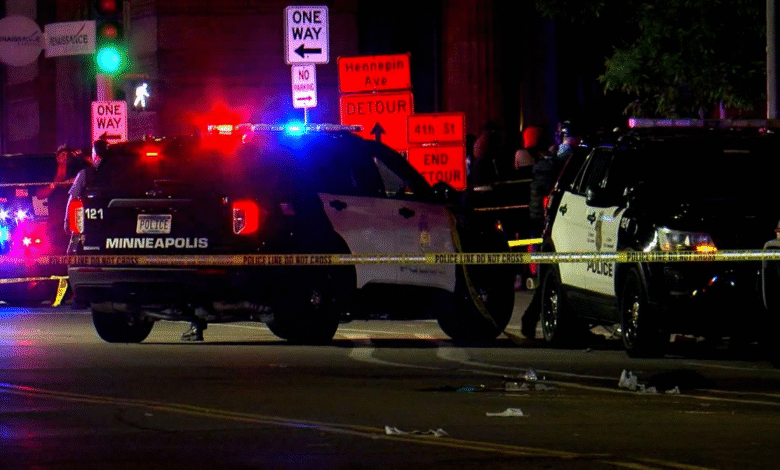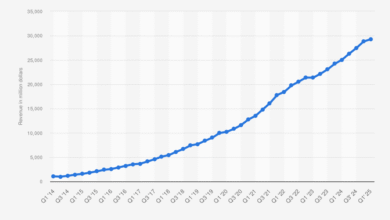Minnesota Shootings: Charges Against Suspect Vance Boelter

The recent Minnesota shootings have sent shockwaves through the community as they highlight a disturbing trend of political violence. Suspect Vance Luther Boelter is facing first-degree murder charges for the tragic slayings of Democratic state Representative Melissa Hortman and her husband, Mark, along with the attack on another lawmaker and his wife. This alarming incident, described as the largest manhunt in Minnesota’s history, raises serious concerns about safety for public officials. The chilling details surrounding the case, including Boelter’s impersonation of a police officer, have led many to question the motives behind this political assassination. As authorities continue to uncover the facts of this case, discussions surrounding the implications for Minnesota lawmakers and the broader political climate are more relevant than ever.
The violent events in Minnesota involving elected officials have drawn attention to the broader issues of safety and political extremism. In this shocking case, Vance Luther Boelter has been charged with first-degree murder following the killings of state Representative Melissa Hortman and her husband, as well as attacks on fellow lawmakers. The incident, which can be viewed as a troubling example of targeted violence against politicians, has ignited debates not only on voter security but also on the increasing risks that public servants face. As the narrative unfolds regarding this assassination attempt, the implications for Minnesota’s political landscape are significant, prompting conversations about the need for better protections and the consequences of unchecked aggression in political discourse. Such acts of violence starkly contradict the ideals of democracy and public service.
The Chilling Case of Vance Luther Boelter
Vance Luther Boelter stands at the center of one of the most shocking legislative attacks in recent history, being charged with first-degree murder in the tragic shooting of Democratic Minnesota lawmaker Melissa Hortman and her husband, Mark. This crime not only resulted in the loss of two lives but has instigated a nationwide debate about political violence and its implications. Boelter’s methodical approach to carrying out this crime, including impersonating a police officer to gain entry to the victims’ homes, showcases a deliberate intent that has left many feeling vulnerable and concerned about the safety of public officials.
The cold calculations behind Boelter’s actions have raised alarms among lawmakers and citizens alike. Authorities reported that he had conducted extensive surveillance of his targets, reflecting a premeditated plan that is both unsettling and deeply troubling. The chilling details surrounding the shooting, alongside Boelter’s arrest during what was described as a historic manhunt, underscore the urgent need for enhanced security measures for those in public office. As the case unfolds, it might redefine protocols surrounding the protection of lawmakers in Minnesota and across the nation.
Political Assassination in Minnesota: A Rare Occurrence
The assassination of political figures, while rare, calls into question the safety of our democracy. Boelter’s attacks on Melissa Hortman and other lawmakers have shocked not only Minnesota but also the entire nation. This incident highlights the potential dangers faced by elected officials, especially in politically charged environments. As political polarization increases, incidents of violence against politicians, including shootings and threats, have surged, creating a climate where public service becomes increasingly perilous.
In light of the shocking nature of this political assassination, experts emphasize the importance of addressing the underlying causes of such violence. Many political analysts argue that heightened rhetoric and divisive discourse may contribute to a culture where attacks against lawmakers can occur. The Hennepin County Attorney’s decision to pursue first-degree murder charges against Boelter reflects the gravity of this situation, as it serves as both a legal response and a reminder of the inherent risks associated with public service. Lawmakers and citizens alike are left grappling with the implications of this tragic event on our political landscape.
The Aftermath of the Minnesota Shootings
The aftermath of the Minnesota shootings has been characterized by shock and a call for action amongst state officials. Governor Tim Walz has denounced the violence, emphasizing that such acts are an affront to democracy. As the investigation into Vance Luther Boelter progresses, discussions surrounding preventive measures to safeguard lawmakers have intensified. The real possibility of Boelter receiving life sentences due to first-degree murder charges serves as a poignant reminder of the severity and consequences of political assassinations.
Furthermore, the involvement of federal prosecutors in charging Boelter with six additional counts, including stalking and firearms offenses, signifies that these shootings carry implications beyond state law. As the legal proceedings are set to begin, they will almost certainly bring to light broader issues of political violence and the need for comprehensive legislative reform. The case could spark debates on how to better protect representatives and the essential foundation of democratic governance.
The Role of Lawmakers in the Wake of Violence
In the wake of the tragic events surrounding the Minnesota shootings, it is crucial to reevaluate the role of lawmakers in ensuring both their safety and that of their constituents. Lawmakers have historically been figures who encourage civic participation and democratic dialogue. However, the rise in political violence asserts a pressing need for them to engage more extensively in discussions about their security and the implications of political targeted violence. As these events draw national attention, a collaborative approach among lawmakers could foster a culture of mutual respect and safeguard the integrity of public institutions.
Political leaders must navigate these turbulent waters effectively, responding not just to the immediate threats but also addressing the underlying issues fueling political assassinations. Empowering lawmakers to advocate for their protection while maintaining a strong stance against divisive rhetoric could lead to more stable political environments. The focus must shift towards creating pathways that foster dialogue and understanding rather than division, preventing tragedies like the Minnesota shootings from recurring in the future.
Public Reaction to Minnesota Shootings
The public reaction to the Minnesota shootings has ranged from disbelief to a renewed call for action against political violence. Citizens are expressing deep concern for the safety of elected officials and the alarming implications these shootings have for democracy itself. Social media platforms have erupted with discussions surrounding the incident, with many users calling for stricter measures to ensure that lawmakers are protected from such violent acts. This widespread outrage indicates a need for community engagement in dialogues about political safety and security.
Moreover, the response from community leaders and advocacy groups has been swift. They are urging for more stringent policies and safeguards to protect public officials amid this growing trend of political violence. The community’s demand for action reflects a heightened awareness of the potential dangers faced by those in public service. This incident serves as a catalyst for partnership among lawmakers, law enforcement, and citizens, aiming to build a more secure environment where discussions can thrive without the fear of violence disrupting democratic processes.
Impact of Political Rhetoric on Violence
The impact of political rhetoric on violence cannot be understated, particularly in light of the Minnesota shootings carried out by Vance Luther Boelter. Experts have analyzed how inflammatory language in the political sphere can contribute to a climate of hostility and conflict. As elected officials engage in heated debates, the line between robust discourse and incitement often becomes blurred, leading to an environment where some individuals may feel justified in taking violent actions against their perceived adversaries.
Lawmakers must take responsibility for the language they use, understanding that their words can have real-world consequences. In the aftermath of the Minnesota shootings, there is a significant opportunity for elected officials to promote messages of unity and civility. By fostering an atmosphere that prioritizes respectful dialogue over divisive rhetoric, lawmakers can help mitigate the risks of politically motivated violence and work towards a more inclusive democratic society.
Legal Implications of First-Degree Murder Charges
The legal implications surrounding Vance Luther Boelter’s first-degree murder charges are profound. Under Minnesota law, a conviction for first-degree murder could result in life imprisonment without parole. This potential sentence serves as a stark warning to would-be assailants who may contemplate targeting public officials. The legal system not only seeks to deliver justice for the victims but also aims to deter similar acts of violence against lawmakers in the future.
As the legal proceedings unfold, the nature of the charges may lead to discussions regarding the adequacy of current laws addressing political violence. This case will likely prompt lawmakers to examine existing protections for elected officials, possibly leading to legislative reforms that address the growing needs for safety and security in public service. The legal outcomes of this case have the potential to shape future policies aimed at safeguarding democracy and ensuring that elected representatives can perform their duties without fear.
Community Vigilance and Awareness
In response to the Minnesota shootings, community vigilance and awareness have emerged as critical components in ensuring the safety of elected officials and their constituents. Communities are urged to remain alert and engaged, reporting any suspicious activities or threats to local law enforcement. Awareness can serve as a deterrent to potential perpetrators, effectively fostering an environment where citizens actively participate in protecting their public officials.
Moreover, public forums and community outreach initiatives can play a vital role in enhancing collective awareness regarding the safety of lawmakers. Engaging citizens in discussions about civic responsibility and the importance of maintaining a respectful political atmosphere can contribute significantly to preventing future incidents of violence. Through increased vigilance and community collaboration, there is hope to restore a sense of security and trust in democratic institutions.
Restoring Faith in Democratic Institutions
The shocking events surrounding the Minnesota shootings have cast a shadow over public trust in democratic institutions. Restoring faith in these systems will require intentional efforts from lawmakers, advocates, and citizens alike. Initiatives aimed at fostering transparency and open dialogue between elected officials and their constituents can help rebuild confidence in the democratic process. By being accountable and accessible, lawmakers can reassure the public that they are committed to serving the interests of their communities.
Additionally, addressing the root causes of political violence will be essential in mending public trust. Lawmakers must prioritize legislative reforms that promote political discourse grounded in respect and civility. Educational campaigns focusing on the responsibilities of citizenship and the importance of safeguarding democratic principles can empower citizens to recognize their role in preventing violence. Collective efforts toward these goals will be crucial in ensuring a more secure future for democracy in Minnesota and beyond.
Frequently Asked Questions
What happened during the Minnesota shootings involving Vance Luther Boelter?
The Minnesota shootings involved Vance Luther Boelter allegedly shooting and killing Democratic state Representative Melissa Hortman and her husband, Mark, while also injuring another lawmaker, state Senator John Hoffman, and his wife. The attacks occurred after Boelter impersonated a police officer to gain access to the victims’ homes.
What charges has Vance Luther Boelter faced in relation to the Minnesota shootings?
Vance Luther Boelter has been charged with first-degree murder for the deaths of Melissa Hortman and her husband, as well as facing additional federal charges including stalking, murder, and firearms offenses related to the broader incidents of the Minnesota shootings.
How did authorities respond to the Minnesota shootings incident?
Authorities conducted the largest manhunt in Minnesota history, lasting 43 hours, which involved 20 SWAT teams to apprehend Vance Luther Boelter. He was eventually found crawling in a field in Sibley County, armed but surrendered without a shot being fired.
Is there a potential for the death penalty in the Minnesota shootings case against Boelter?
Yes, U.S. Attorney Joe Thompson stated that it is too early to determine if the Justice Department will pursue the death penalty against Vance Luther Boelter. However, it is considered one of the options available given the severity of the charges.
What motives might have driven the Minnesota shootings according to officials?
Officials believe the Minnesota shootings were politically motivated, as Boelter appeared to target Democratic lawmakers and was found with a list of potential targets, including political figures who support abortion rights. His actions have raised concerns about political assassinations in the democratic process.
What has been the reaction to the Minnesota shootings from state officials?
Minnesota officials, including Governor Tim Walz, have expressed shock at the violence connected to the Minnesota shootings, emphasizing the rare and harmful nature of political assassinations and their implications for democratic governance.
What security measures may arise after the Minnesota shootings targeting lawmakers?
In the wake of the Minnesota shootings, there may be increased security measures for lawmakers, including enhanced protection protocols and resources for their safety due to the alarming nature of these politically motivated attacks.
What is the significance of the charges against Vance Luther Boelter regarding the Minnesota shootings?
The significance of the first-degree murder charges against Vance Luther Boelter in the Minnesota shootings extends beyond individual incidents; it highlights the potential dangers lawmakers face and raises serious discussions about political violence in the U.S.
| Key Points | Details |
|---|---|
| Suspect Arrested | Vance Luther Boelter was arrested after a 43-hour manhunt, the largest in Minnesota’s history. |
| Murder Charges | First-degree murder charges are being filed against Boelter for killing state Rep. Melissa Hortman and her husband. |
| Additional Charges | Federal charges include stalking and firearms offenses related to the shooting of another lawmaker and his wife. |
| Criminal Motives | Authorities believe Boelter targeted the victims as part of a politically motivated attack against Democrats. |
| Preparedness | Boelter researched and surveilled his victims, carrying a list of potential targets. |
| Community Impact | The shootings have shocked Minnesota and ignited discussions on political violence. |
Summary
The Minnesota shootings have raised serious concerns about political violence in the state, particularly with the shocking assassination of state Representative Melissa Hortman and her husband. Suspect Vance Luther Boelter’s premeditated attacks on lawmakers underscore a troubling trend of targeting elected officials driven by ideological motives. As charges mount against Boelter, the implications of these violent acts resonate beyond Minnesota, challenging the foundations of democracy and the safety of political figures.




